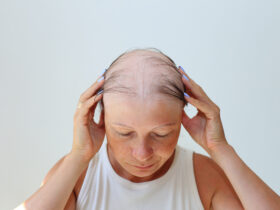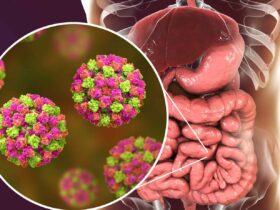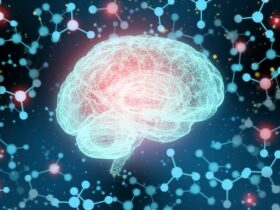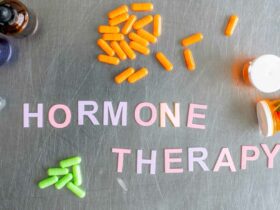Perimenopause, or the time that the changes of hormones are starting, is one of the important time periods for women, as it determines how well or poorly they can get through the actual menopause process. Although night time sweating and sweating appear to be the most acknowledged symptoms, recent research has pinpointed depression as another alarming point of interest which may get worse. Recognizing depression as an effect of perimenopause is of a primary importance for taking care of women by helping their mental health.
The Hormonal Shift: Understanding Perimenopause
Perimenopause occurs around the age of 40, and the symptoms can linger for years, which can lead to the finish of menstrual cycle. During ovaries’ transition to another stage, the levels of estrogen and progesterone, hormones that regulate the menstrual cycle, gradually become lower. This process of hormonal fluctuations can be displayed in different ways – that is, by showing these variations in both physical and emotional aspects.

Some common physical symptoms of perimenopause include:
- Irregular menstrual cycles
- Hot flashes and night sweats
- Vaginal dryness
- Difficulty sleeping
- Weight gain
But perimenopause’ emotional aspect can be just as complicated. Mood and tension, ırrıtability, anxiety and concentration problems are reported being frequent side effects.
The Depression Connection: How Perimenopause Can Affect Mental Health
A paper led by researchers and published recently in the Journal of Affective Disorders proposes a hypothesis that depression might be triggered by the perimenopausal stage which occurs prior to menopause. Researchers analyzed information from over 9,000 women and discovered that women in their perimenopausal stage were 2.5 times more probable to be diagnosed with depression or to display depressive impairments than women who were not facing menopause.
The precise reasons behind this increased mortality rate are currently unknown, with researchers still exploring the topic. Nevertheless, as the hormonal levels, especially after the drop in estrogen, may appear to be the most salient factor. Estrogen is an organic hormone which manages the transfer of neurotransmitters in the brain, chemicals that rule the mood. A drop in estrogen may then pose a problem with these neurotransmitters end up producing the symptoms of depression.
Recognizing the Signs and Seeking Help: Promoting Mental Wellness During Perimenopause
Understanding the potential for depression during perimenopause is essential for both women and healthcare providers. Here are some key points to consider:
- Symptoms of Depression: Although sometimes feeling down is normal part of our life, severe and prolonged sadness, loss of interest in activities that were enjoyable in the past, symptoms like changes of appetite, disturbance of sleep patterns, hopelessness and problems with concentration, can be symptoms of depression.
- Importance of Open Communication: Women in perimenopause should freely be able to speak with their healthcare providers about their symptoms, and particularly about any emotional changes, during this time of transition. Early diagnosis and treatment of mental illness are therefore essential components for promoting the mental wellbeing among affected individuals.
- Treatment Options: Fortunately, the fact is that depression is treatable. The treatment may involve an antidepressant medication as well as psychotherapy (talk therapy), and the two methods can also be combined.
Beyond the Study: Supporting Women’s Health Throughout Perimenopause
The study on perimenopause and depression highlights the importance of holistic women’s healthcare. Here are some additional points to consider:
- Lifestyle Changes: Healthy lifestyle like good daily exercise which matches balanced diet, good sleeping daily and stress management techniques can actually perform as weapons of choice to fight for physical and mental well-being of people in perimenopause.
- Alternative Therapies: For some girls, the marvel in the process of perimenopause can be relieved through alternative therapies such as acupuncture, yoga, and mindfulness practice.
- Building a Support System: Being with the people around you such as friends or family members who offer love and support, or a therapist if you need one, can create a comfortable zone where you can express your emotions as well as bear with the difficulties of perimenopause.
Conclusion: Knowledge is Power – Empowering Women’s Health Through Awareness
Womens perimenopause can be a difficult period, both physically and simultaneously, emotionally. Since it is known that there is a possible tie between perimenopause and depression, women can become more proactive when it comes to seeking treatment and, in turn, maintain their mental health. Being open to communicate with healthcare providers and also adopting healthy lifestyle habits and having a supportive network among women, can help them to go through this life stage in a meaningful and confident manner
Here are some additional resources that can be helpful:
- The North American Menopause Society: https://www.menopause.org/
- National Institute on Mental Health: https://www.nimh.nih.gov/health/topics/depression
- Office on Women’s Health: https://www.womenshealth.gov/
Please keep in mind that mental health care is equally as significant as physical health care. Keep in mind that there are people to help you navigate this phase of life and beyond perimenopause.















Leave a Reply